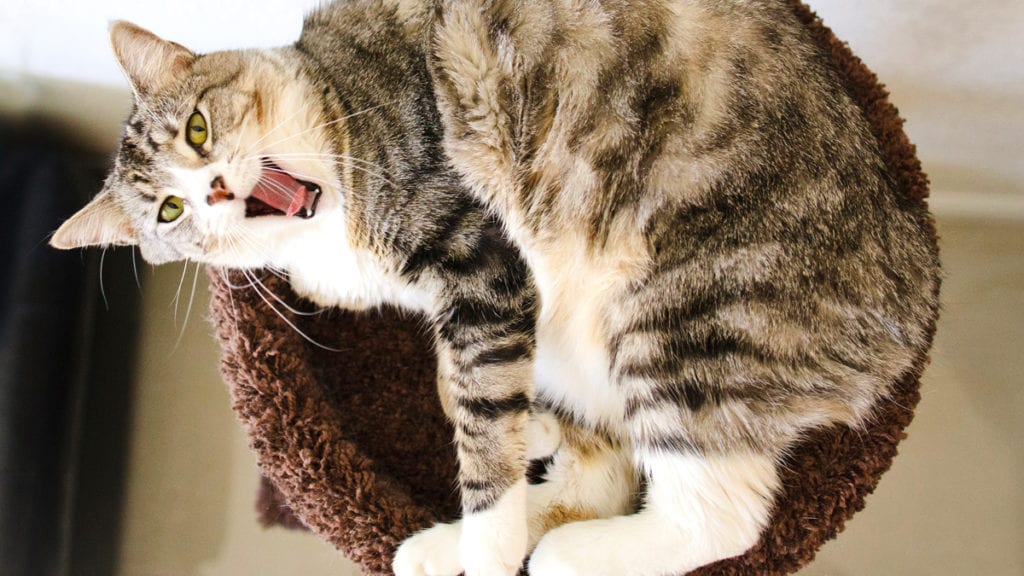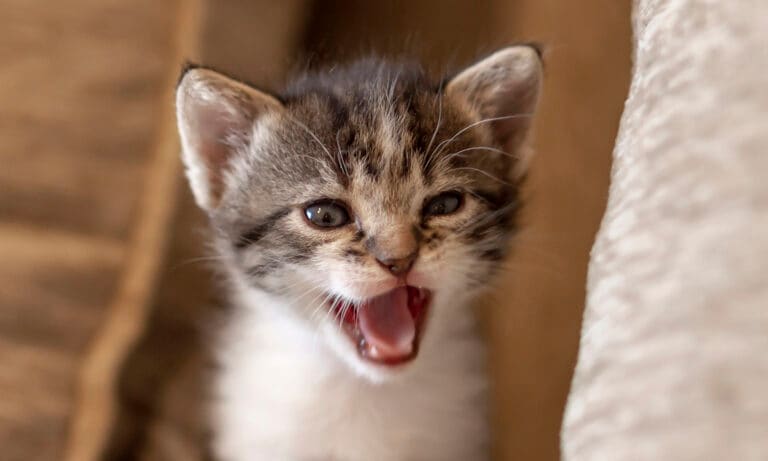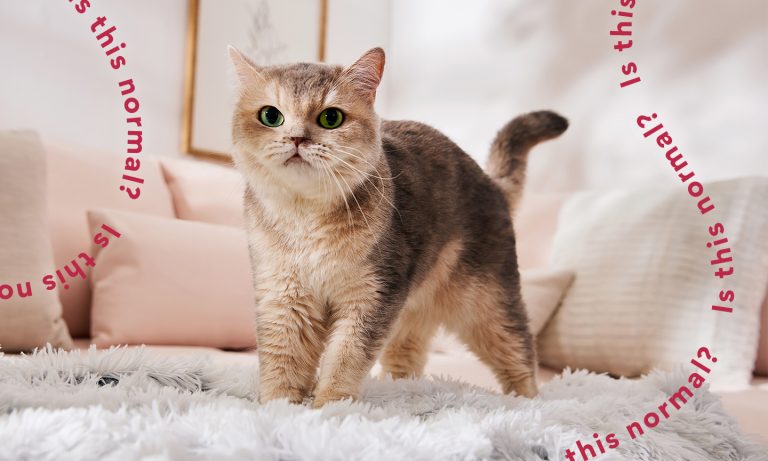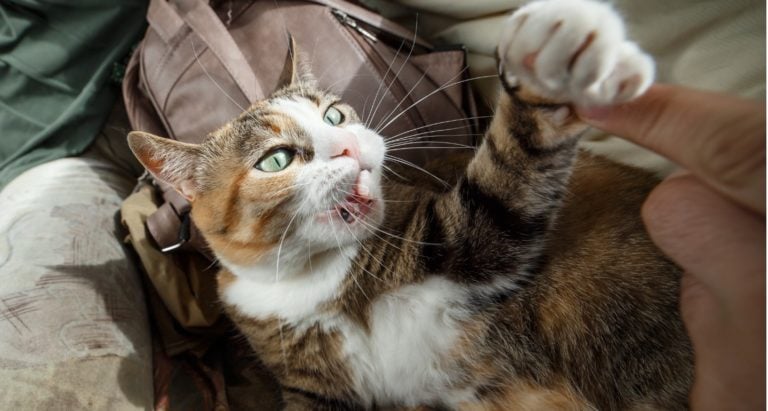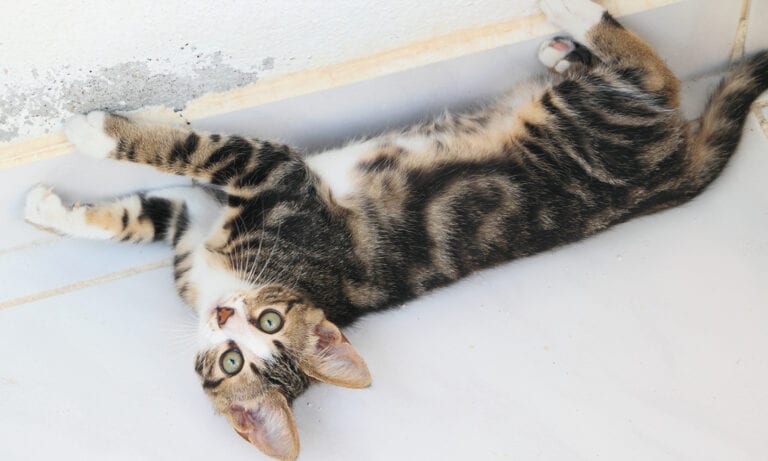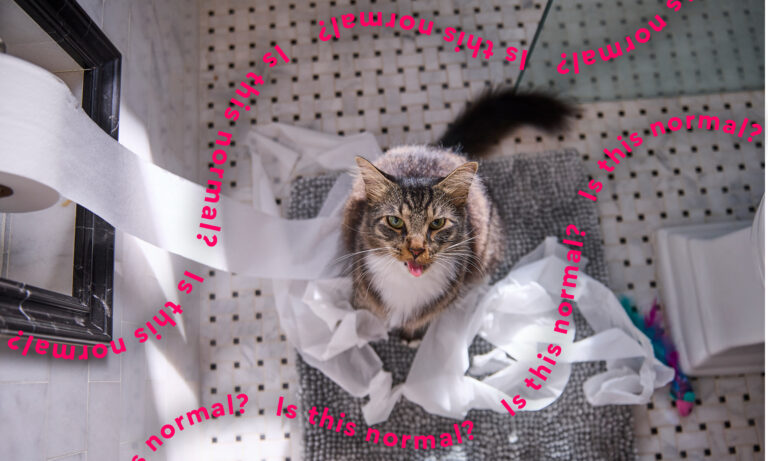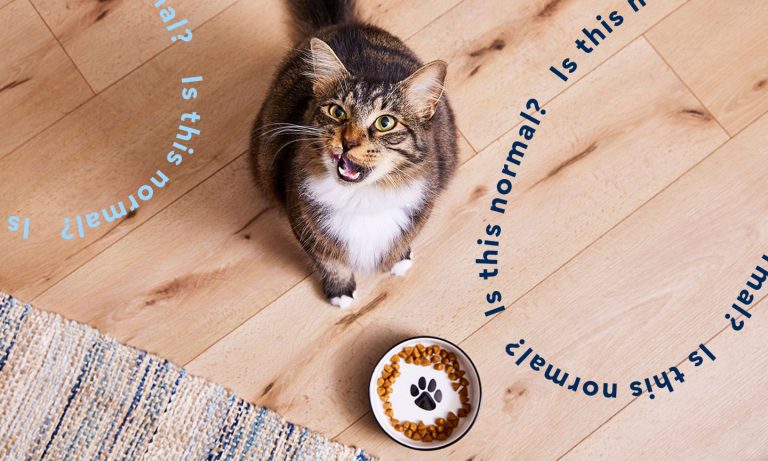Cats can be incredibly loving and friendly creatures, but don’t underestimate their ability to defend themselves when the situation calls for it. When a cat perceives something or someone to be a threat, he will usually emit intimidating cat noises—a hissing sound—to scare off whatever is causing his fear.
Some will hear these startling, snake-like cat noises and automatically assume they came from an aggressive cat—when in fact, the opposite is true. Hissing is a form of defense “when a cat encounters a situation that makes them feel anxious, afraid or threatened,” says Jennifer Maniet, DVM, staff veterinarian at Petplan pet insurance. “Hissing is just one of the many nonverbal ways in which all cats communicate with their owners, housemates, and anyone else that may cross their paths.”
When a cat feels threatened, they will engage in the infamous hissing cat noises and “even change their facial expression, ear and body postures to appear more intimidating.” Just as a snake will hiss and stand up when he feels threatened, a cat will do the same to appear as an aggressive cat to scare off the perceived threat. “This [cat] behavior is meant to be a warning signal to deter opponents.”
If you’ve ever heard a cat hiss, you have probably noticed that it is strikingly similar to the hiss of a snake. Dr. Louis Marinos, a veterinarian practicing in Long Island, NY, says, “It is believed that cats actually developed hissing from snakes.” Snakes will let out a long hiss if they are intimidated, and cats will do the same to “warn others that their actions are making them unhappy,” he says.
You may notice that every time you bring a new guest into your home, like your friend visiting for the weekend or a family member during a reunion dinner, your cat doesn’t warm up to them immediately. Though this is not true for all cats, there are those that will view your guest as a potential threat and will come off as an aggressive cat and hiss to ward off the “intruder” from their territory. To make the visit less stressful for everyone involved, you can warn your guests before they enter to essentially ignore the cat unless he blatantly asks for their attention. You can also try the Comfort Zone with Feliway Cat Diffuser to keep your cat calm when you have visitors. The Feliway diffuser makes your home a safe haven for your cat by using a heating element to diffuse a calming pheromone into the air. The vapor signals to your cat that the area is friendly and safe, reducing your cat’s urge to hiss at new visitors or display other defensive cat behaviors.
Trying to get your cat to do something they don’t want to do, like putting them in their carrier, or shooing them off a piece of furniture, can also cause hissy fits (literally). These instances can cause anxiety, so your cat will engage in hissing, which in cat language, means that you should stop. If you want to train your cat to stay calm in these trying circumstances, you can use Pet Naturals of Vermont Calming Cat Chews. These soothing, chicken-flavored supplements use natural ingredients to reduce stress or aggressive cat behavior.
If a cat is hissing at you, your first reaction may be to reprimand or even comfort the cat, but Dr. Maniet advises otherwise. “If you don’t stay away [when you hear a cat hiss], a cat may resort to more aggressive cat behavior such as scratching and biting,” she says. When you hear cat noises like hissing, it’s best to remove whatever is provoking him as soon as possible before the cat becomes combative and causes injury to you or others.
A cat that is constantly hissing can be easily calmed thanks to a few training aids. The Sentry HC Good Behavior Phermone Cat Calming Collar uses pheromones that mimic those that a mother cat produces to alleviate any stress your cat may have. The cat collar will help your kitty feel safe and secure so he will be less likely to resort to defensive cat behaviors. Besides the collar, the ThunderShirt Anxiety & Calming Solution is another great way to keep your cat relaxed in stressful situations. This product applies gentle, constant pressure to calm your cat’s fear and anxiety.
Keep in mind that besides feeling threatened, a cat may hiss because something is wrong with them physically. “Hissing can be a signal that a cat is sick and needs medical attention,” Dr. Maniet says. If your cat is hissing with no perceived threats in sight, you should take him to your veterinarian for a consultation.
Share:
